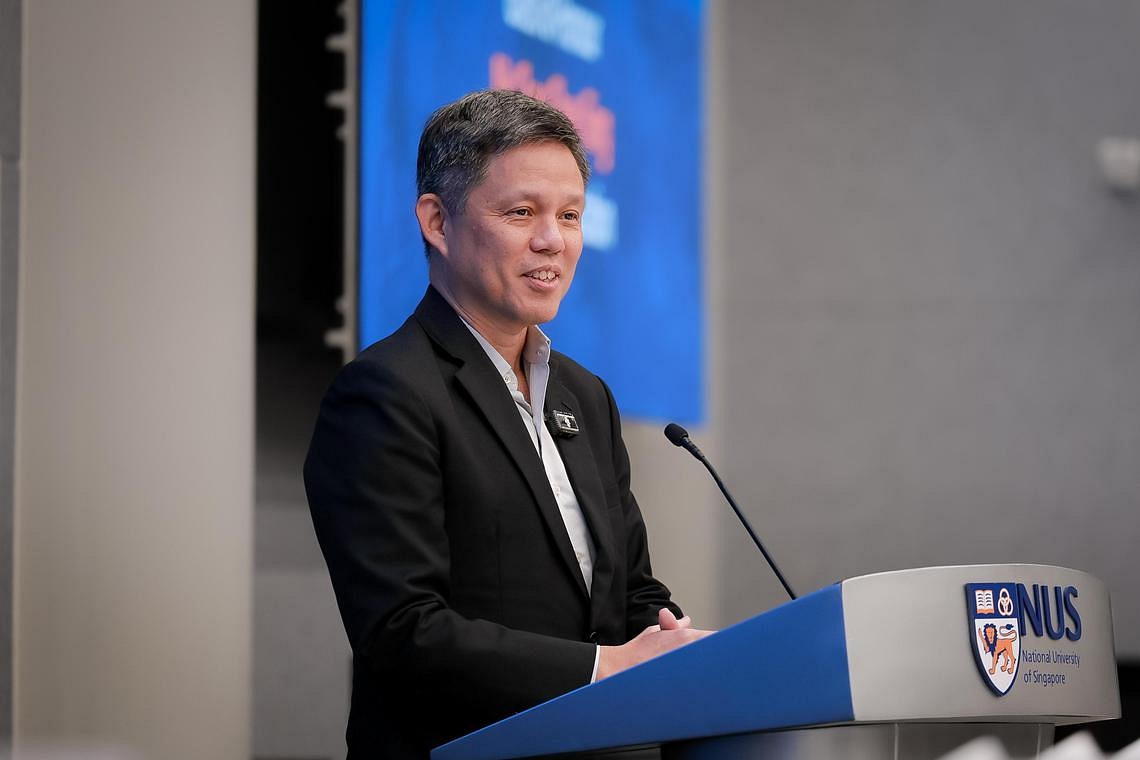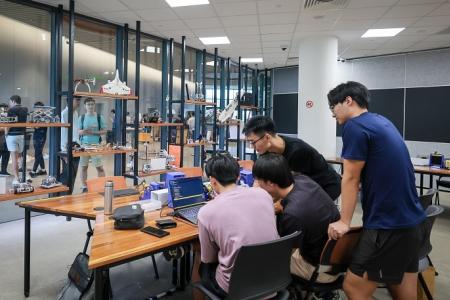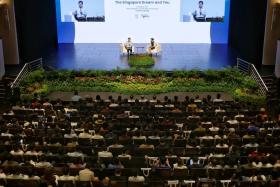NUS Computing expands with new AI degrees, facilities
Undergraduates and postgraduates entering the National University of Singapore (NUS) from the academic year 2025 can enrol in its new artificial intelligence (AI)-focused degree programmes.
The university’s School of Computing will offer a new Bachelor of Computing in Artificial Intelligence, where those enrolled will be prepared for AI-centric jobs, said NUS president Tan Eng Chye on Jan 21.
Students will also learn about issues of ethics, privacy and AI governance, he added.
The current Bachelor of Computing in Information Systems programme will also be changed to one leading to the Bachelor of Computing in Business Artificial Intelligence Systems, Professor Tan said, adding that the programme will focus on “AI solutioning” and governance for business and organisations.
Postgraduate students can opt for the new Master of Computing in Artificial Intelligence programme, which has courses on the latest in AI and computing, and trains them for AI careers and research, he added.
Prof Tan was speaking at the official opening of the NUS School of Computing’s new buildings, Sea Building and Sea Connect, which opened in 2022 and 2023, respectively.
They were funded by tech company Sea, which donated $50 million to NUS in 2021 for research and education in computing.
Sea owns e-commerce platform Shopee and game developer Garena.
The Sea Building, or Com3, is home to 10 new research labs, three teaching labs, and other meeting and seminar rooms for students.
Sea Connect, or Com4, has two research labs, five teaching labs, seminar rooms and a student lounge.
The fund has also benefited more than 700 undergraduate and postgraduate students through scholarships and awards, sponsorship and funding for research projects.
NUS Computing has a current enrolment of over 6,000 undergraduates and nearly 2,000 postgraduates.

Education Minister Chan Chun Sing, who was guest of honour at the opening, said that NUS’ partnership with Sea goes beyond the donation and “can define the competitiveness of Singapore”.
While Singapore is unable to compete on size or resources, it can compete on speed, network and ideas, he added.
“Our students get the benefit of the cutting-edge practices in industry while they are studying,” said Mr Chan.
“This is key to our competitiveness. The tighter our industry and academia nexus, the faster we will be, and the more likely it can become our competitive advantage.”
Speaking to The Straits Times, undergraduate students Jessie Wang, 21, and Ravichandran Gokul, 22, said that the new buildings are cleaner and more conducive to learning.
Mr Gokul, a Year 1 computing student, said circular tables in the new classrooms facilitate learning and discussion.
Both students are part of the first batch to use the new buildings and its new facilities, such as a makers’ lab that has hardware components like circuit boards and robots.
These new facilities allow students to get hands-on experience and try various tools, said Mr Gokul.
Get The New Paper on your phone with the free TNP app. Download from the Apple App Store or Google Play Store now


